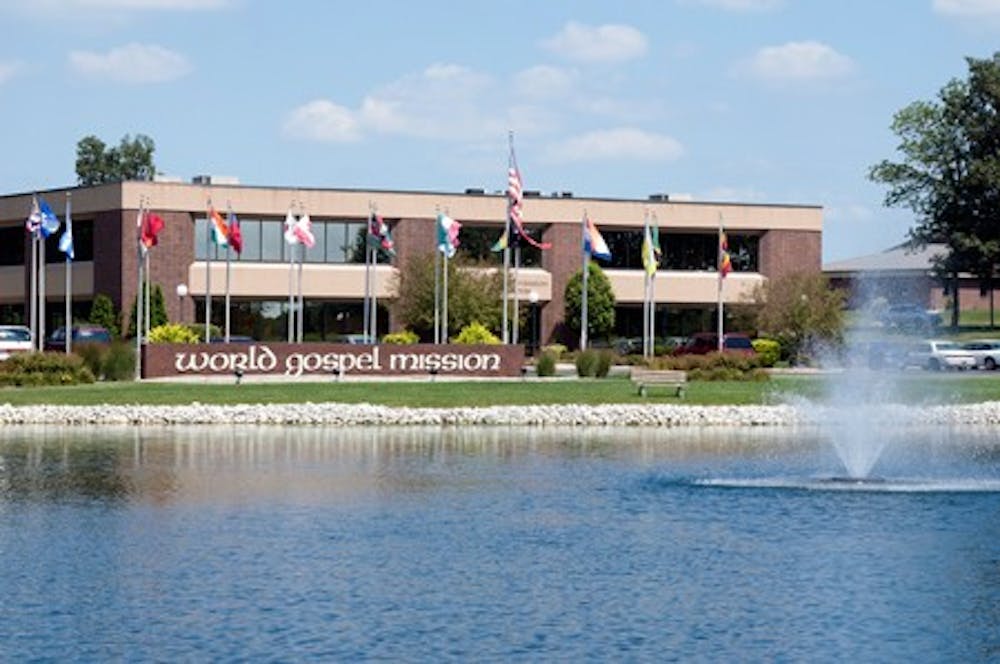By Leah Knibbe | Echo
Rachel Elwood, a 2004 Taylor graduate, witnessed what life as a missionary is like and the intense commitment it requires growing up as the daughter of missionaries serving in Bangladesh. She uses that knowledge today as she works as a writer for World Gospel Mission (WGM), an organization in Marion, Ind., that focuses on helping missionaries in a variety of ways.
"To become a missionary, you have to start with a direct call on your life from the Lord," Elwood said. "The call is so important because it's going to get tough. The enemy attacks on every front, and if you don't know exactly why you're trying to reach people with the gospel then you're not going to make it."
Kristi Crisp, vice president of communications at WGM, goes further, saying that missions can help people learn how they can participate in the work to which they are called.
"A lot of people will tell us that after going on a short-term missions trip, giving up one or two weeks of your life, it gives you opportunity and clarity to see more of God's world and see more of what's happening," Crisp said. "He (God) gives you the ability, then, to work more closely to what he might have in store and how you can have a part in what he's doing."
The emotional toll of becoming a missionary can be high, and missionaries must hold on to the assurance that missions are God's call for their life.
"It starts with knowing that God has your family in the palm of his hands and that he will provide no matter what," Elwood said. "Without that trust, you can't make it."
Elwood speaks from experience. Her parents held that trust when they moved their family, with children ages six, eight and nine, to Bangladesh, one of the poorest countries on the planet.
"They knew that God would take care of us, and he did," Elwood said.
WGM began in June of 1910, when two reverends and their wives founded the Missionary Society of the National Association for the Promotion of Holiness's first missionaries, and began work in China. In 1937, the organization's name was shortened to "National Holiness Missionary Society." During the '50s, it was again changed to "World Gospel Mission," and its headquarters were moved from Chicago to Marion.
Preparation and training is essential to adjusting well on the mission field. WGM works to prepare the entire family for the transition by discussing what life is going to be like without extended family and familiar community. The organization also addresses the reality of a significant language barrier.
"Various preparation can be done that can at least get the children and the parents ready to survive and thrive in a cross-cultural setting," Elwood said.
Returning from the field can be just as difficult as embarking, however.
"Mu Kappa was a life-saver for me," Elwood says of the student organization which provides a supportive environment to missionary kids by helping them appreciate and embrace their cultural background while learning to integrate into an American community.
Those who wish to be supported by WGM as full-time missionaries go through an extensive application process that includes a Bible test, a theological questionnaire, a psychological test and a series of references from pastors. A "Candidate Review" weekend occurs when applicants meet with a committee and explain why they feel called to be a missionary.
If an applicant is accepted, WGM begins coaching, teaching them how to fundraise, reviewing how much financial support is needed, building support teams and preparing them for life on the mission field.
Growing up in a foreign country can be a difficult experience, but Elwood feels lucky that she was able to grow up in Bangladesh. It wasn't always easy, but she was able to see God work in amazing ways.
"I feel so lucky that I got to grow up in Bangladesh," Elwood said. "I experienced some really tough things, but I wouldn't trade it for anything."
Thanks to its 100-year existence, WGM can reach out to their established connections within churches around the country to help support missionaries. The missionaries WGM assist are located in 19 countries, working with numerous organizations in a variety of fields.
"We're not focused on just planting churches or setting up hospitals," Crisp said. "We have a variety of opportunities and we use people from all walks of life with all different experiences."
Crisp knows that many people think missions is a great endeavor, but that it's not for them. She believes otherwise. "I think we've learned that God uses all skill sets and all abilities. God can use us all."
Even though Crisp studied Elementary Education at Indiana Wesleyan, she can't imagine doing anything else with her career today.
"There's a variety (of work) every day, but I know that what I'm doing, no matter how big or small, is helping to get the message, the Word of Christ, out there to people who haven't yet heard," Crisp said. "What more can you do?"
Elwood is constant witness to God's work on the mission field, but remembers one story that was particularly touching. In Kenya, a three-day-old baby girl that had been found in a pit, thrown away, was found and rescued. She was brought to a baby center that WGM supports, and was later adopted.
Thumbnail photograph by Adam Lorenz



